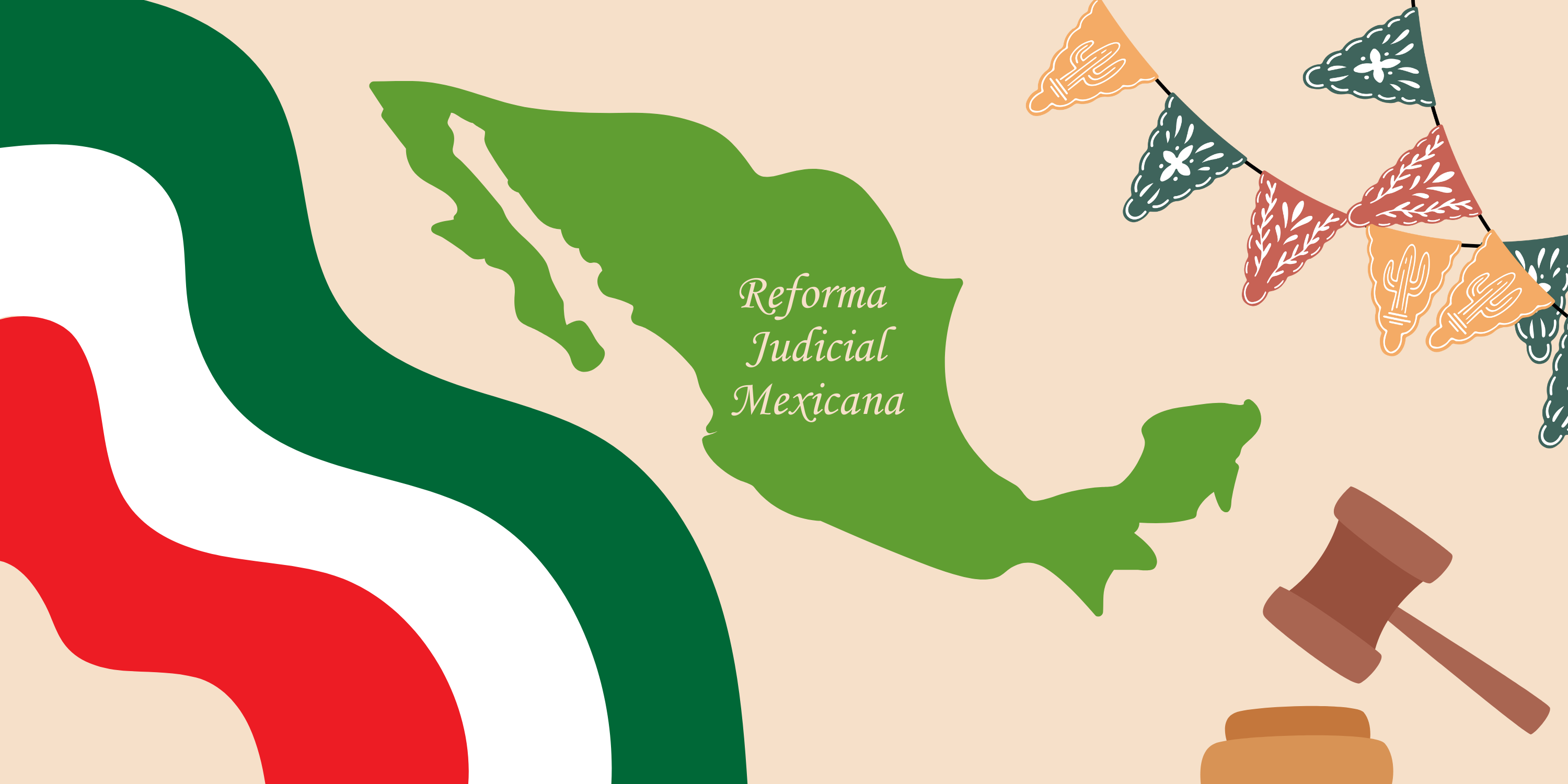Senators in the Mexican legislative system vote for a judicial system reform that could dismantle the separation between the three democratic powers.
To understand what the Mexican Reform is and how it will affect Mexican democracy, you must first understand Mexican politics. The Mexican political system is quite similar to the one in the United States, with three important branches making up the government. Keep in mind that for each system there are three levels as well: municipal (local), state, and federal.
First, the legislative system creates laws, which the senators make. Then, the executive system, including the president, governors and municipal president/mayor, applies the laws. Lastly, the judicial system, which is made up of 33 powers – 32 at the state level, and one at the federal level – ensures that the laws and the Constitution are upheld in the country. The judicial system is made up of hierarchical departments: the Supreme Court (made up of ministers), courts (made up of magistrates), judges, secretaries, interns, etc.
Before the reform, the judicial system was a meritocracy. For an individual to become part of the judicial system, the individual had to go through many experiences, promotions and difficult law exams. Secretaries who passed the exams would go up the rank. The rank moves up until becoming a magistrate in a federal court. To become part of the Supreme Court, one must be chosen by the president. The president chooses three candidates and then the senators must vote for one to become a Supreme Court minister/judge.
Once you understand the political system, you can understand Mexican Reform. You might wonder, what does the Mexican Judicial Reform have to do with the president?
As a Mexican who has studied the American political system more than the Mexican one, I also had the same question. Let me illustrate. The outgoing president, Andrés Manuel López-Obrador, with the support of senators/lawmakers, set a reform of how to become part of the judicial system. Many citizens believe the decision was influenced by unknown yet corrupt motives, from the president to lawmakers.
The new law that senators voted on September 15 changed the independence of the three political systems, ironically taking place just five days before Mexico’s Independence Day. To become a minister, magistrate and/or judge with this change in the judicial system, requirements are based on popular vote rather than on professional experience and exams. The requirement to be voted into the judicial system, according to the reform, is simply to have a GPA of eight out of ten in a law degree (based on the Mexican educational system).
The response to this reform is polarized. Members and politicians from the Morena (Movimiento de Regeneración Nacional) party argue that the reform could open doors to young citizens who do not have a lot of experience to become part of the justice system. The Morena party has been in power since 2018 and represents the Mexican left-wing political party and is often described as a populist and anti-neoliberal party. Currently, it is the largest political party in Mexico, with more than 2 million members.
The Morena party members also argue that the reform would get rid of any nepotism in the judicial system. The president-elect from the Morena party, Claudia Sheinbaum, wrote on her X account: “I congratulate the senators of our movement for the approval of the Judicial Reform. With the election of judges, magistrates, and ministers, the administration of justice in our country will be strengthened. The regime of corruption and privileges is increasingly becoming a thing of the past, and we are building a true democracy and a true rule of law.”
However, many voters – especially young Mexican voters – argue inexperienced people may reach high positions in the justice system. The system could be more politicized than it already is. Furthermore, López Obrador, from the Morena political party, has already gained the support of officials from the executive and legislative branches. This reform strengthens his support and alliance with the third power: the judicial system. Just as López Obrador finds himself in his last month as a president, judges, judicial staff and voters protest in the streets of Mexico City to the session hall of the senate.
“Democracy is in danger,” said José Fernando Migues Hernández, a Mexican judiciary worker according to an article from NPR.
On September 10, employees from the judicial power passed harsh security in the session hall while chanting “El poder Jucial no va a caer!” (The Judicial system will not fall) according to a post from Animal Político. Protesters were sprayed with fire extinguishers by security officials.
“The Miguel Agustín Pro Juárez Human Rights Center slammed the Senate’s approval on Wednesday, saying the reform ‘annuls the division of powers’ and generates ‘democratic erosion,’” according to an article from CNN.
To maintain democracy, the separation of the three power systems is crucial. If all three of Mexico’s powers follow one political party (Morena), there is a danger of a dictatorship.
There is still doubt and worry about what this would mean to the justice system, especially in a country known for its corruption, unsafeness, violence and femicide.
Header by Sara Cabral-Manterola




NO COMMENT